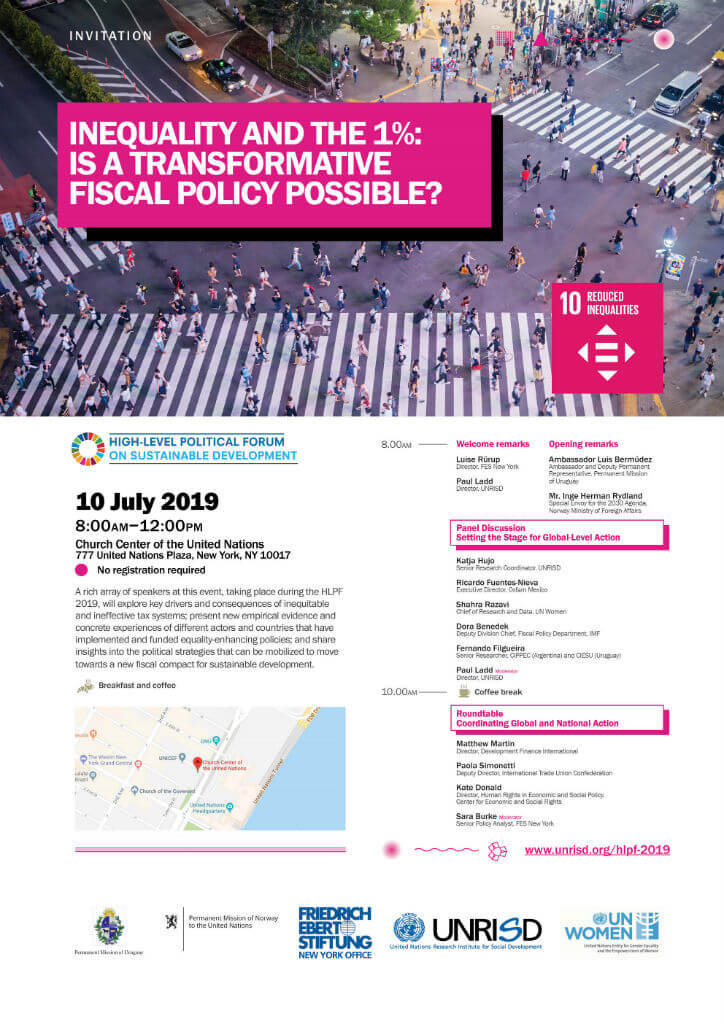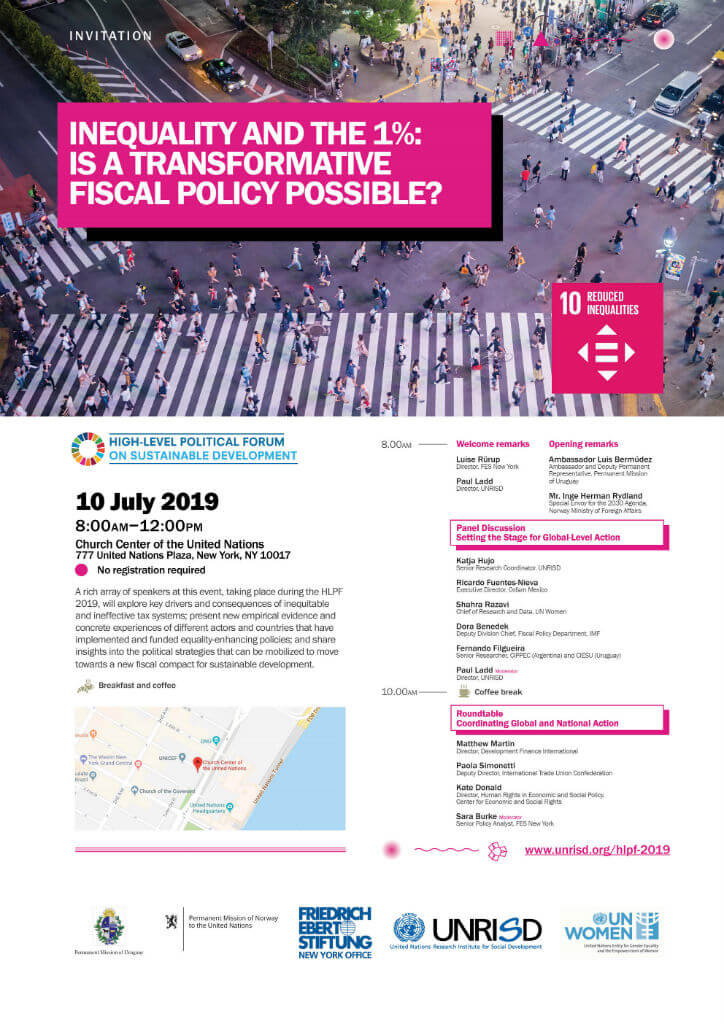Panel discussion: Inequality and the 1%: Is a transformative fiscal policy possible?

Inequality as a social, political, and development issue has risen to the top of public agendas, with its damaging impacts on social, environmental, and economic sustainability and its link to poverty, insecurity, crime, and xenophobia now widely demonstrated and acknowledged. Vertical (income) and horizontal (group-based) inequalities, when intersecting, reinforce each other.
Poverty often exacerbates the structural violence and discrimination already suffered by individuals who belong to one or more marginalized groups. In the case, for example, of women and girls, there remain persistent and protracted gaps in achieving women’s rights and realizing tangible progress on the ground, especially regarding labour rights, equal pay, and a fair distribution of unpaid care work.
In keeping with the mandate of the High-level Political Forum on Sustainable Development (HPLF) to provide guidance and recommendations on implementing the 2030 Agenda for Sustainable Development, the panellists at this event will share knowledge and experience on how to use equitable and sustainable taxation policies to reduce inequalities, and how to build the agency and overcome political barriers to implement tax reforms that are equality-enhancing and contributing to sustainable development.






